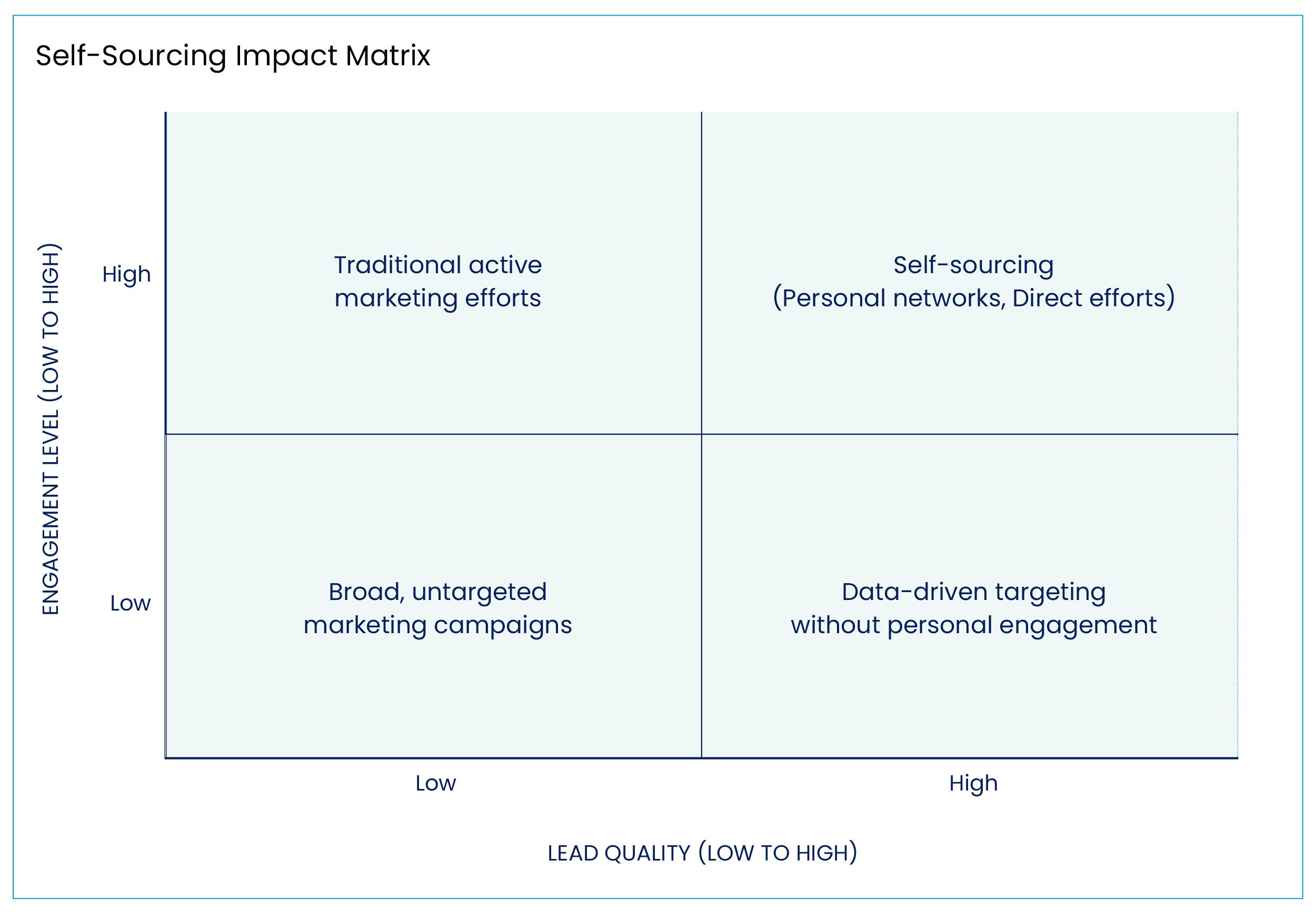- Tapping into sellers’ personal connections. Helping sales reps self-source opportunities through their own networks, with their own brands and missions, is the next evolution of the buyer/seller relationship.
- Incentivizing self-sourcing. Monetary incentives, such as commission structure and bonuses, play a crucial role in motivating sellers to embrace self-sourcing.
- Robust support systems are needed. To enable sales reps to excel in self-sourcing, companies must provide URL support, content creation tools and customer relationship management integration.
What is your personal brand? Have you ever thought about it? More importantly, do you know how to monetize it?
Unless you are a social media influencer, you probably don’t think too much about your personal brand as it relates to your social life or your professional life. Having a passable headshot for social media is generally the extent to which most people contemplate how they present themselves to the world.
Learn: Sales Compensation: Foundation and Core Principles
Sales reps, on the other hand, are notorious for well-crafted taglines, distinct mission statements and consistent messaging designed to develop trust between them and their followers. However, more needs to be done by organizations to harness this power to their benefit. Helping sales reps self-source opportunities through their own networks, with their own brands and missions, is the next evolution of the buyer/seller relationship.
This innovative approach flips the script on traditional lead generation methods, empowering salespeople to forge their own path to success. Instead of relying solely on marketing or sales development teams, sales reps who engage in self-sourcing leverage their personal networks and digital presence to attract high-quality leads.
Traditional Methods vs. Self-Sourcing
To understand the tangible impact of this approach on lead quality and engagement, the Self-Sourcing Impact Matrix below compares traditional lead generation methods with the more personalized approach of self-sourcing. Situated in the top-right quadrant, self-sourced leads are both highly engaged and of superior quality, underscoring the effectiveness of leveraging personal networks and direct efforts.

But what exactly is sales rep self-sourcing? It’s all about initiative. It’s about salespeople seizing control of their destiny by actively cultivating relationships, harnessing the power of social media and crafting a compelling personal brand. This proactive mindset not only yields better leads but also instills a deep sense of ownership and accountability within the sales team.
Learn: Sales Compensation: Strategy and Design Application
Some forward-thinking sales professionals have already grasped the significance of self-sourcing in today’s competitive market. In some industries, such as real estate, there have been noticeable shifts in sales strategies, moving from the traditional “always be closing” to the more contemporary and inclusive “always be seen.” This evolution reflects a deeper understanding of the sales process, emphasizing the importance of visibility and personal brand in generating leads and building trust with potential clients.
While these innovative approaches demonstrate the potential benefits of self-sourcing, they are used sporadically. Adopting a more consistent, companywide strategy that encourages and rewards self-sourcing efforts could significantly enhance sales teams’ effectiveness and overall business outcomes.
Motivating Sellers
So, how can companies encourage this approach? Monetary incentives play a crucial role in motivating sellers to embrace self-sourcing. Here are some examples of how organizations can reward and recognize sales reps for their proactive efforts:
- Commission structure. Implementing a commission structure that rewards reps for self-sourced leads can be highly effective. Companies can offer higher commission rates or bonuses for deals closed through self-sourcing efforts, providing a direct financial incentive for sellers to invest time and energy into building their own pipelines.
- Performance bonuses. Introducing performance bonuses tied to specific self-sourcing metrics can also drive results. For instance, sales professionals could earn bonuses based on the number of qualified leads generated or the conversion rate of self-sourced opportunities. This encourages reps to focus on activities that directly contribute to the company’s bottom line.
- Lead generation contests. Engaging sellers in friendly competition through lead generation contests can foster a culture of collaboration and accountability. Companies can set targets for self-sourced leads and offer rewards such as cash prizes or gift cards.
- Professional development opportunities. Indirect compensation can be given to reps by investing in the professional growth of sales professionals who excel in self-sourcing. Companies can offer training programs, certifications, or access to industry events and conferences as rewards for surpassing self-sourcing targets. The values can vary, but on average falls between $500 and $2,000 a year. This not only incentivizes performance but also demonstrates the organization’s commitment to supporting the career advancement of its sales team.
But it’s not just about the money. Companies must also provide robust support systems to enable reps to excel in self-sourcing. Here are a few examples:
- URL support. Providing dedicated landing pages or personalized URLs (PURLs) for sellers can streamline their self-sourcing efforts. These resources act as digital calling cards, allowing salespeople to showcase their expertise and capture leads efficiently.
- Content creation tools. Equipping reps with content creation tools such as branded templates, social media scheduling platforms or even graphic design resources empowers them to produce engaging content that attracts prospects and nurtures relationships.
- CRM integration. Integrating self-sourced lead tracking directly into the company’s customer relationship management (CRM) system ensures seamless management and visibility of leads generated by sales professionals. This enables better collaboration between sales and marketing teams and facilitates data-driven decision making.
In essence, self-sourcing represents a transformative shift in sales culture, where individual initiative and innovation are celebrated and rewarded. By providing both monetary incentives and robust support systems, companies can unlock the full potential of their sales teams and drive sustainable growth in today’s competitive marketplace.
Editor’s Note: Additional Content
For more information and resources related to this article, see the pages below, which offer quick access to all WorldatWork content on these topics:








